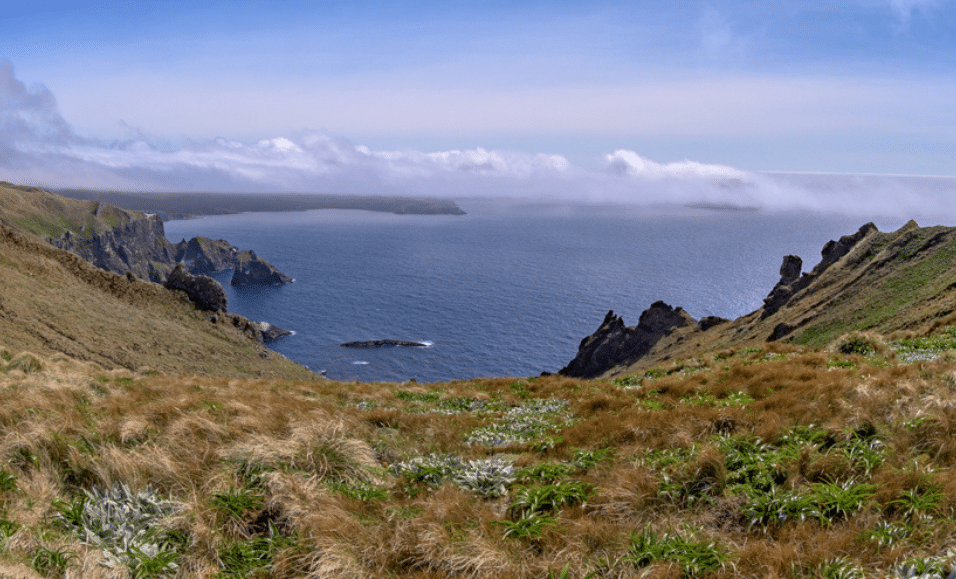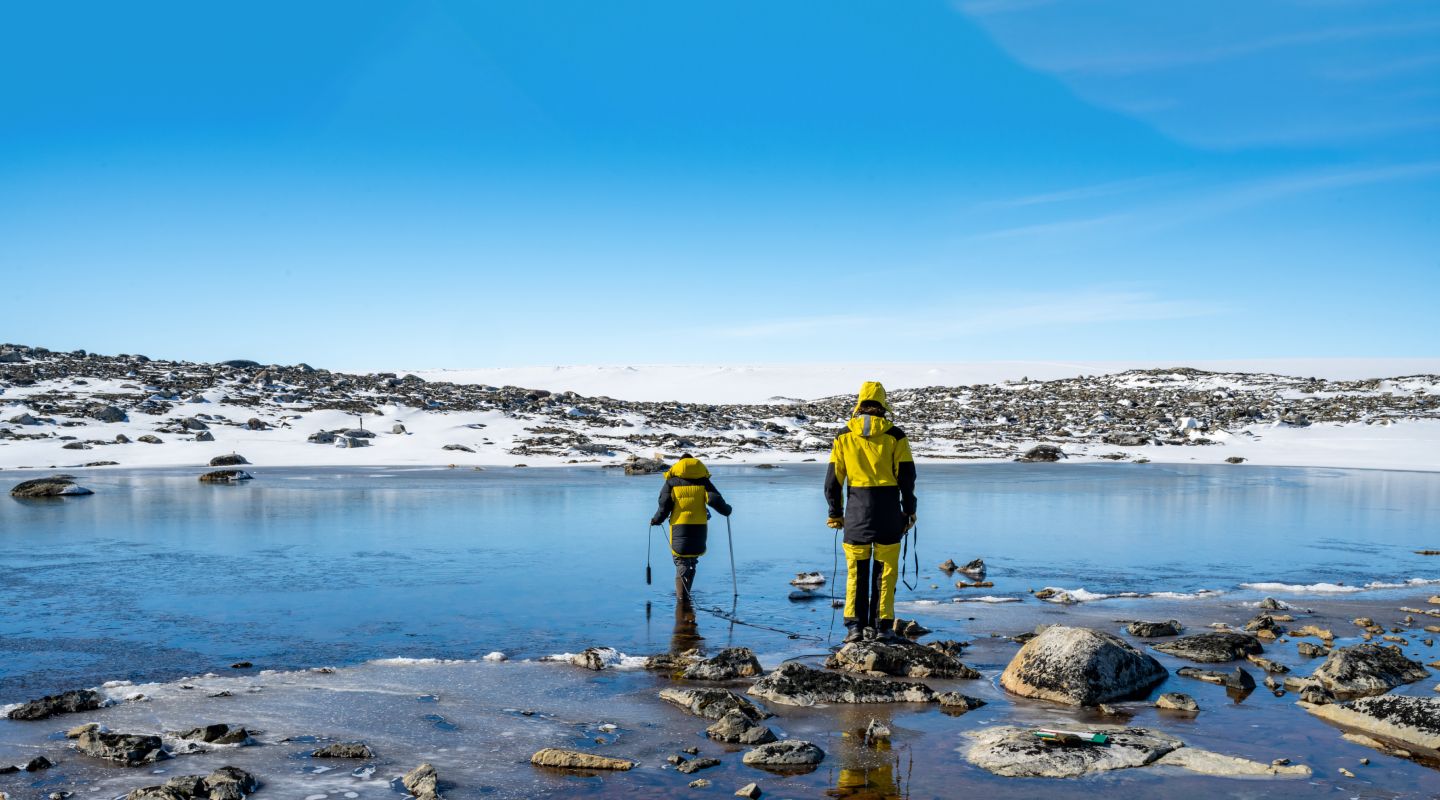Two Antarctic Ecology PhD Positions Available

Three Bays Area, Heard Island. Credit: Steven L Chown

Ectemnorhinus viridis. Credit: Bernard Chaubert

Campbell Island. Credit: Matthias Dehling

Macquarie Island. Credit: Matthias Dehling
Two exciting, significant PhD positions are now available to excellent students who are driven to make a difference to our world, especially through fundamental understanding of Antarctic ecology that is essential for the conservation of the region.
The positions are available in the ChownLab through Securing Antarctica’s Environmental Future (SAEF).
SAEF is a leading international research program delivering interdisciplinary research to forecast environmental change across the Antarctic region, to deploy effective environmental stewardship strategies in the face of this change, and to secure Antarctica as a natural reserve devoted to peace and science. The program uses the benchmark social-ecological systems approach as the basis for reciprocal integration of theory, observations, modelling and data, with the information requirements of structured decision-making, to enable the delivery of informed, future-ready environmental policy.
SAEF is led from Monash University’s Clayton Campus and brings together 30 organisations, both national and international, to deliver its program. The team includes scores of researchers and practitioners from across the disciplinary spectrum, including terrestrial and marine ecology, conservation biology, conservation practise, evidence-based policy and law, mathematical modelling, optimisation, glaciology, and atmospheric science.
The ChownLab is a central part of the SAEF Program, delivering research and evidence-informed policy through SAEF’s Theme 2 Biodiversity Status and Trends. We have strong collaborations with a range of national and international global leaders in these fields and much science to policy experience.
Position 1. Biodiversity in a Changing Antarctic.
The successful candidate will investigate patterns of taxonomic, functional, and phylogenetic diversity (alpha, beta, gamma, zeta) and endemism (contribution, complementarity) across different taxa (birds, mammals, plants, invertebrates) in the Antarctic. This position will be co-supervised by Dr. Matthias Dehling (Monash University) and Professor Steven Chown (Monash University).
For this position, we are seeking a postgraduate researcher with a background in macroecology, community ecology or related areas with a keen interest in the ecosystems of the Southern Ocean and Antarctica, and who is driven by scientific curiosity, innovation, and a strong work ethic.
The successful candidate will have skills in data analysis (multivariate statistics, functional and phylogenetic diversity analyses, niche modelling, or related subjects) using R or Python. Experience in publishing scientific research articles and advanced knowledge of one (or more) taxonomic groups of the study region would be favourable. Candidates are expected to work independently under guidance (incl. the ability to develop their own research questions and acquire new skills as needed), as well as collaborate on related topics with other lab members and external researchers. Opportunities for Antarctic fieldwork exist.
Position 2. Climate change impacts on Heard Island.
The successful candidate will examine changes in the abundance, traits (such as body size) and community composition of invertebrates (insects and Collembola) of Heard Island using modern techniques and long-term data series. Part of the work will involve in situ collection of new material on Heard Island mid-way through the PhD program. This position will be co-supervised by Professor Steven Chown (Monash University), Dr. Amy Liu (Monash University) and Dr. Mark Stevens (South Australian Museum).
For this position, we are seeking a postgraduate researcher who has a keen interest in Collembola or insects, who is willing to transfer those interests to additional groups, and who is willing to undertake fieldwork and museum-based research, and who has an aptitude for landscape genomics and community ecology.
The successful candidate will have experience in genomics and/or community ecology, be comfortable with statistical analysis in R, and have strong writing skills. Experience in publishing scientific research articles and advanced knowledge of one (or more) taxonomic groups of the study region would be favourable. Candidates are expected to work independently under guidance (incl. the ability to develop own research questions and acquire new skills as needed), as well as collaborate on related topics with other lab members and external researchers. Rigorous field conditions are characteristic of research on Heard Island, and the successful candidate will have an aptitude for such work. Experience in some fieldwork would be favourable.
How to apply
Applicants for either of the positions need to meet the entry requirements for a PhD at Monash University; all candidates should also be at the level of eligibility for Domestic or International Scholarship Support at Monash University.
Enquiries regarding the position and applications, including a CV and a short cover letter (minimum of 2 and maximum of 4 pages describing the candidate’s research background, motivation, and fit for the position) should be sent to Dr. Matthias Dehling (matthias.dehling@monash.edu) (Project 1) or Professor Steven Chown (steven.chown@monash.edu) (Project 2) with the title of the project as subject line in the email. Please send PDF documents only.
Applications close 30 June 2023.
Short-listed candidates will be interviewed by online meeting and a decision taken within two weeks of the interviews.
